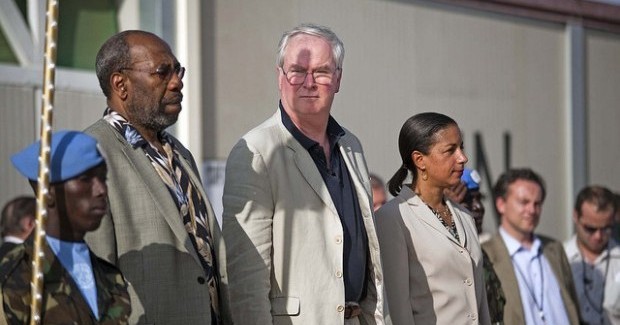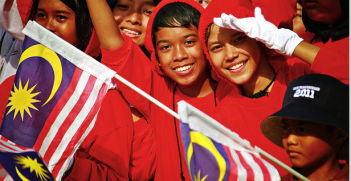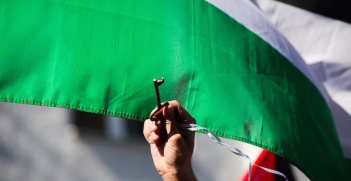Delivering a United Nations Security Council Presidency: the UK Experience

It has been rewarding to be High Commissioner here during Australia’s time on the United Nations Security Council. We have worked very closely together on UNSC business as in many other areas. The UK takes its responsibilities as a permanent member very seriously. The Security Council remains the world’s most important forum for galvanising the international community into responding to threats to security around the world. My colleagues in London, New York and elsewhere spend a lot of time thinking about how best to do this, and working to make it happen.
That is why it is so important to make the most of the opportunity to set the agenda when we hold the rotating Presidency of the Council, as the UK did in August.
Too often, the Security Council finds itself responding to conflicts that have already broken out. The UK uses its Council seat to work to empower the UN, to anticipate possible conflicts at an early stage, and act to defuse tensions. Each time it holds the Presidency, the UK arranges a ‘horizon-scanning’ session for Council members to identify and instruct the UN in addressing possible conflicts – in line with the original concept that the Council should act as a smoke detector rather than a fire extinguisher.
As Presidency, the UK called a special debate in August, which led to the UNSC Resolution 2171 on conflict prevention. Co-sponsored by Australia, amongst others on the Council, this document consolidates the Council’s language on prevention and is the first resolution to recognise human rights violations as an early indicator of conflict. Secretary-General Ban Ki-moon spoke supportively in the debate, stressing the need for the early presence of UN missions; and partnerships with regional and sub-regional organisations. Outgoing High Commissioner for Human Rights Navi Pillay emphasised the link between peace, security and human rights.
In addition to Security Council members, the European Union and 39 non-Council members contributed to a valuable debate. This strong level of interest should help deliver more effective early interventions.
The UK also wanted to use its Presidency term to ensure that the Security Council remained focused on Somalia. This has been a personal priority of Prime Minister David Cameron, who has hosted two major international summits on Somalia in 2012 and 2013.
Somalia’s civil war caused immense humanitarian suffering; allowing the Al Shabaab terrorist group to operate and pose a threat to countries like the UK and Australia. So the UK and Nigeria co-hosted a Security Council delegation to Somalia. The Council’s visible support to the recently formed federal government and new parliament in Somalia should boost their efforts to rebuild their country and provide essential services to the Somali people.
The delegation then went on to South Sudan in order to press the warring parties to put down their arms. Australia has been a long-standing contributor to the UN mission in South Sudan (UNMISS).
That was the work we had planned to do. But, inevitably, as Presidency we also had to lead the Council in responding to new developments. In August, we saw the alarming advance of ISIL in Iraq, which led to the unanimous passing of Resolution 2170 that condemns ISIL; and instructs member states to sanction key members, as well as take steps to choke off the recruitment and financing flows that allow it to operate. The issue of foreign fighters in the conflict affecting Syria and Iraq is of pressing concern to both the Australian and British governments; given the number of our nationals fighting there as we have seen so graphically on our television screens. We need the UNSC to catalyse the concerted international response required to effectively tackle this threat.
Throughout our August Presidency, it was very valuable to be able to draw on the cooperation and advice of our Australian colleagues in Canberra, New York and London. The Australia-UK relationship has been revitalised over the last four years through the annual AUKMIN meetings of our foreign and defence ministers. At the most recent of these, in March, our ministers specifically discussed and planned our cooperation on the Security Council. Australia’s first term as Council Presidency last September was a great success, with Australia using its arms control credentials to lead the Council to agree UNSCR 2117; the Council’s first pronouncement on the issue in several years and a valuable updating of international law.
Australia will of course take on the Security Council Presidency again in November, and the UK looks forward to supporting it and helping to ensure that it is a success. In the meantime, there will be plenty of Council business on which we will need to work closely together. The conflicts in Africa will demand attention, but there may be a need to address security threats elsewhere.
Australia has recently showed great diplomatic skill in driving through a resolution in response to the shocking downing of MH17 with so many Australian victims on board. That resolution was just one example of the valuable contribution Australia has made during its two-year term on the Council. Before 2013 we had waited almost thirty years to have Australia on the Council with us – I hope we will not have to wait so long for its next appearance.
His Excellency Mr Paul Madden CMG is the British High Commissioner to Australia.





